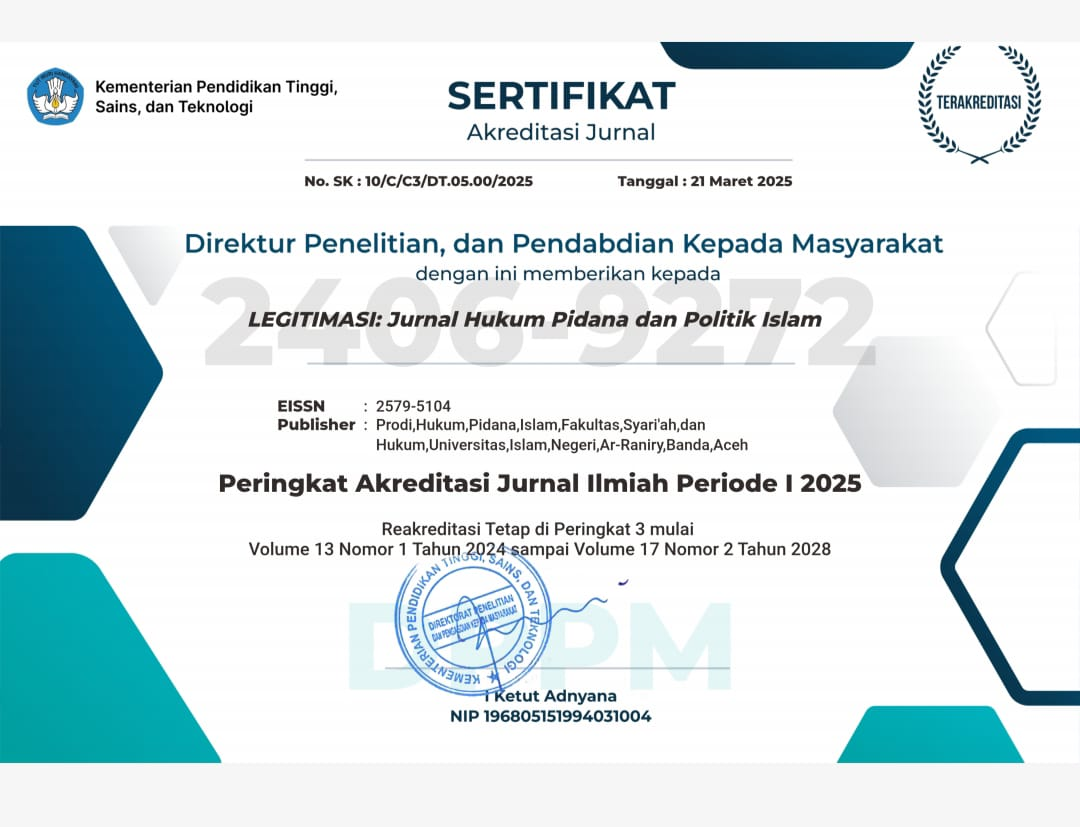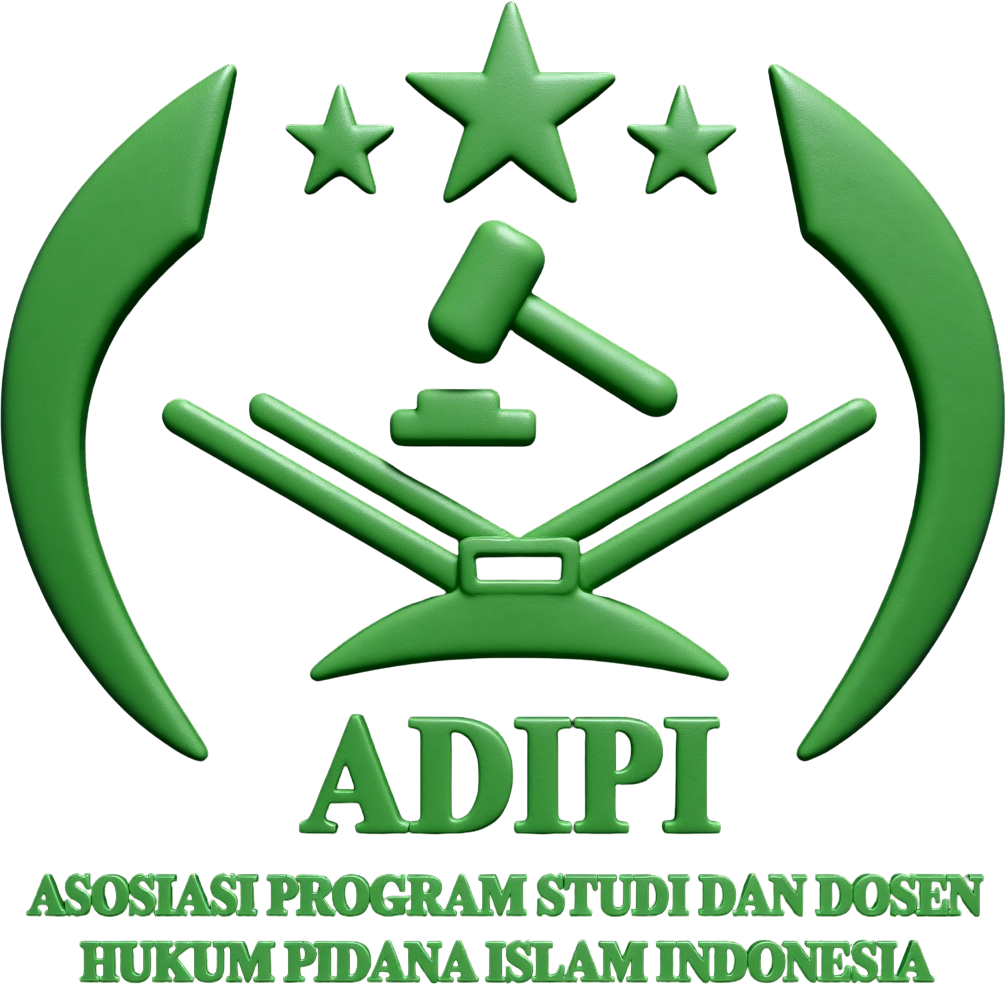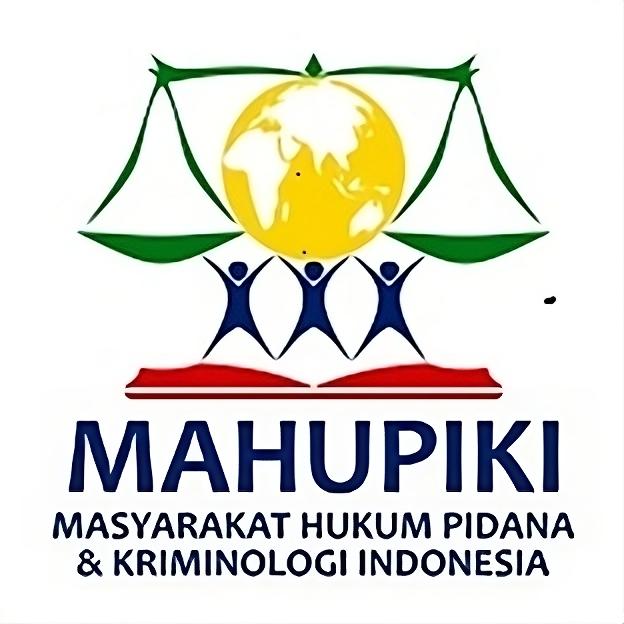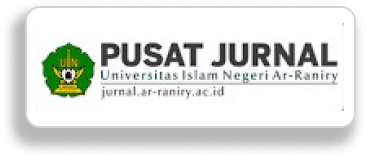Reformulating the Policy Framework for Sting Operations by Investigators of the Corruption Eradication Commission
DOI:
https://doi.org/10.22373/legitimasi.v14i1.30176Keywords:
Corruption Offenses, Corruption Eradication Commission, Sting OperationsAbstract
Corruption offenses in Indonesia are perceived as ongoing and persistent, continuing to this day and resulting in significant losses to the state. The establishment of the Corruption Eradication Commission through Law Number 30 of 2002 concerning the Corruption Eradication Commission serves as a trigger mechanism to enhance the effectiveness of anti-corruption efforts. As part of its initiatives, the Corruption Eradication Commission conducts Sting Operations aimed at combating corruption by apprehending perpetrators through silent operations. This study formulates two problems, namely, how the mechanism of Sting Operations held by the Corruption Eradication Commission investigators aligns with legislation, and what is the ideal regulation of Sting Operations held by the Corruption Eradication Commission investigators. This study is a normative legal research with secondary data consisting of primary, secondary, and tertiary legal materials. This study uses a statutory, conceptual, and interpretive approach. The result of this study indicates that Sting Operations conducted by the Corruption Eradication Commission are often equated with the concept of ‘caught red-handed’, which is stated in The Indonesian Criminal Procedure Code (KUHAP). However, both Sting Operations and ‘caught red-handed’ differ in meaning and may potentially violate the principle of due process of law. Therefore, a comprehensive reformulation of Sting Operations procedures within the legal framework of the Corruption Eradication Commission is necessary.
References
Arfiani, Arfiani, Syofirman Syofyan, dan Sucy Delyarahmi. “Problematika Penegakan Hukum Delik Obstruction of Justice Dalam Undang-Undang Pemberantasan Tindak Pidana Korupsi.” UNES Journal of Swara Justisia 6, no. 4 (2023): 516.
Arief, Basrief. Korupsi dan Upaya Penegakan Hukum (Kapita Selekta). Jakarta: Adika Remaja Indonesia, 2006.
Askin, Moh, dan Masidin. Penelitian Hukum Normatif Analisis Putusan Hakim. Jakarta: Kencana, 2023.
Atmoko, Dwi, dan Amalia Syauket. “Penegakan Hukum Terhadap Tindak Pidana Korupsi Ditinjau dari Perspektif Dampak Serta Upaya Pemberantasan.” Binamulia Hukum 11, no. 2 (2022): 177–91.
Daun, Yodi Alfahri, Tofik Yanuar Chandra, dan Agung Makbul. “Kewenangan KPK Melakukan Penyadapan Dalam Penyelidikan dan Penyidikan Tindak Pidana Korupsi.” SALAM: Jurnal Sosial dan Budaya Syari 9, no. 5 (2022): 1526–40.
Fanhar, Frisca Tyara M. “Operasi Tangkap Tangan (OTT) Tinjauan Berdasarkan KUHAP Dan Undang Undang Nomor 30 Tahun 2002 Tentang Komisi Pemberantasan Korupsi (KPK).” Corruptio 1, no. 2 (2020): 91–104.
Faris, Afif Naufal, dan Rehnalemken Ginting. “Legalitas Dan Efektivitas Operasi Tangkap Tangan Pasca Berlakunya Undang-Undang Nomor 19 Tahun 2019.” Recidive : Jurnal Hukum Pidana dan Penanggulangan Kejahatan 9, no. 1 (2020).
Frans, Mardian Putra, dan Muh Haryanto. “Legalitas Operasi Tangkap Tangan Oleh Komisi Pemberantasan Tindak Pidana Korupsi.” Jurnal Ilmu Hukum 3, no. 2 (2020): 117–18. http://ejournal.uksw.edu/alethea.
Habibi, Muhammad. “Independensi Kewenangan Komisi Pemberantasan Korupsi Komisi Pemberantasan Korupsi.” Cepalo 4, no. 1 (2020): 41–51.
Krisnawati, Wahyuni, dan Hari Soeskandi. “Peristilahan Operasi Tangkap Tangan Ditinjau Dari Prespektif Kitab Undang-Undang Hukum Acara Pidana.” Journal Evidence of Law 1, no. 2 (2022): 112–29.
Manullang, Sardjana Orba, Yessy Kusumadewi, Verawati, Henry Kristian Siburian, Hendro Siburian, dan Baren Sipayung. “Problematika Hukum atas Pembentukan Perubahan Kedua atas UU KPK.” Journal on Education 05, no. 2 (2023): 4885–97.
Marbun, Rocky. “Konferensi Pers Dan Operasi Tangkap Tangan Sebagai Dominasi Simbolik: Membongkar Kesesatan Berpikir Dalam Penegakan Hukum Pidana.” Jurnal Ius Constituendum 7, no. 1 (2022).
Mochtar, Zainal Arifin Mochtar. “Independensi Komisi Pemberantasan Korupsi Pasca Undang-Undang Nomor 19 Tahun 2019.” Jurnal Konstitusi 18, no. 2 (2021): 345.
Noviantama, Doni, Muhammad Hanif Mahsabihul Ardhi, dan Wahyu Priyanka Nata Permana. “Analisa Hukum Penetapan Tersangka Yang Didasarkan Alat Bukti Hasil Penyelidikan Oleh KPK.” Lex Renaissance 9, no. 2 (2024): 256–81.
Nugroho, Wahyu. “OTT Tak Relevan Lagi dalam Memberantas Korupsi?” detiknews, 2024. https://news.detik.com/kolom/d-7672209/ott-tak-relevan-lagi-dalam-memberantas-korupsi.
Oktavianto, Rizky, dan Norin Mustika Rahadiri Abheseka. “Evaluasi Operasi Tangkap Tangan KPK.” Jurnal Antikorupsi INTEGRITAS 5, no. 2 (2019): 117–31.
Peraturan Presiden Republik Indonesia Nomor 87 Tahun 2016 tentang Satuan Tugas Sapu Bersih Pungutun Liar.
Pinem, Srimin, Muhammad Yusrizal, dan Adi Syaputra. “Dinamika Pemberantasan Tindak Pidana Korupsi.” Jurnal Yuridis 10, no. 2 (2023): 87–94.
Pratama, Andre, dan Gunawan Nachrawi. “Tinjauan Hukum Terhadap Operasi Tangkap Tangan Terkait Kasus Jual Beli Jabatan Di Lingkungan Pemerintah Daerah.” Jurnal Ilmiah Publika 10, no. 2 (2022): 407–15.
Putra, Risqi Perdana. Penegakan Hukum Tindak Pidana Korupsi. Yogyakarta: Budi Utama, 2020.
Saputra, Muhammad Alfin. “Implementasi Operasi Tangkap Tangan Yang Dilakukan Komisi Pemberantasan Korupsi.” Jurnal Lex Renaissance 5, no. 4 (2020): 806–18.
Sholihin, Firdaus, dan Wiwin Yulianingsih. Kamus Hukum Kontemporer. Jakarta: Sinar Grafika, 2016.
Supardi. Hukum Acara Pidana. Jakarta: Kencana, 2023.
Suyanto. Pengantar Hukum Pidana. Yogyakarta: Budi Utama, 2018.
Tim Berita KPK. “Kinerja KPK 2020-2024: Tangani 2.730 Perkara Korupsi, Lima Sektor Jadi Fokus Utama.” Berita KPK, 2024. https://www.kpk.go.id/id/ruang-informasi/berita/kinerja-kpk-2020-2024-tangani-2730-perkara-korupsi-lima-sektor-jadi-fokus-utama.
Tim Hukumonline. “6 Metode Penafsiran Hukum Sudikno Mertokusumo dan A. Pitlo.” Hukum Online, 2022. https://www.hukumonline.com/berita/a/metode-penafsiran-hukum-mertokusumo-pitlo-lt6331ab71b721c?page=all.
Wahyuni, Willa. “Mengenal Operasi Tangkap Tangan KPK.” HUKUMONLINE.COM, 2022. https://www.hukumonline.com/berita/a/mengenal-operasi-tangkap-tangan-kpk-lt626ac7a171949?page=all.
Wibisono, Dionesius Kevin, Pujiyono, dan A.M. Endah Sri Astuti. “Operasi Tangkap Tangan Sebagai Strategi Pemberantasan Tindak Pidana Korupsi Oleh Komisi Pemberantasan Korupsi.” Diponegoro Law Journal 10, no. 4 (2021).
Yandwiputra, Ade Ridwan. “ICW Catat Sepanjang 2023 Ada 791 Kasus Korupsi, Meningkat Singnifikan 5 Tahun Terakhir.” TEMPO, 2024. https://www.tempo.co/hukum/icw-catat-sepanjang-2023-ada-791-kasus-korupsi-meningkat-singnifikan-5-tahun-terakhir-57431.
Yogi, Yogi Pratama. “Penegakan Hukum Terhadap Operasi Tangkap Tangan Perkara Tindak Pidana Korupsi.” Jurnal Justisia : Jurnal Ilmu Hukum, Perundang-undangan dan Pranata Sosial 7, no. 1 (2022): 232.
Statute
Constitution of the Republic of Indonesia 1945
Law Number 20 of 2001 concerning Amendments to Law Number 31 of 1999 concerning Eradication of Criminal Acts of Corruption
Law of the Republic of Indonesia Number 19 of 2019 concerning the Second Amendment to Law Number 30 of 2002 concerning the Corruption Eradication Commission
Law of the Republic of Indonesia Number 30 of 2002 concerning the Corruption Eradication Commission
Law of the Republic of Indonesia Number 31 of 1999 concerning Eradication of Criminal Acts of Corruption
Law of the Republic of Indonesia Number 8 of 1981 concerning the Criminal Procedure Code
Downloads
Published
Issue
Section
License
Copyright (c) 2025 Elsa Bonde, Aji Lukman Ibrahim

This work is licensed under a Creative Commons Attribution-NonCommercial-ShareAlike 4.0 International License.
Authors who publish in Legitimasi: Jurnal Hukum Pidana dan Politik Hukum agree to the following terms:
- Authors retain copyright and grant the journal right of first publication with the work simultaneously licensed Attribution-ShareAlike 4.0 International (CC BY-SA 4.0) that allows others to share the work with an acknowledgment of the work's authorship and initial publication in this journal.
- Authors are able to enter into separate, additional contractual arrangements for the non-exclusive distribution of the journal's published version of the work (e.g., post it to an institutional repository or publish it in a book), with an acknowledgment of its initial publication in this journal.
- Authors are permitted and encouraged to post their work online (e.g., in institutional repositories or on their website) prior to and during the submission process, as it can lead to productive exchanges, as well as earlier and greater citation of published work. (See The Effect of Open Acces)












